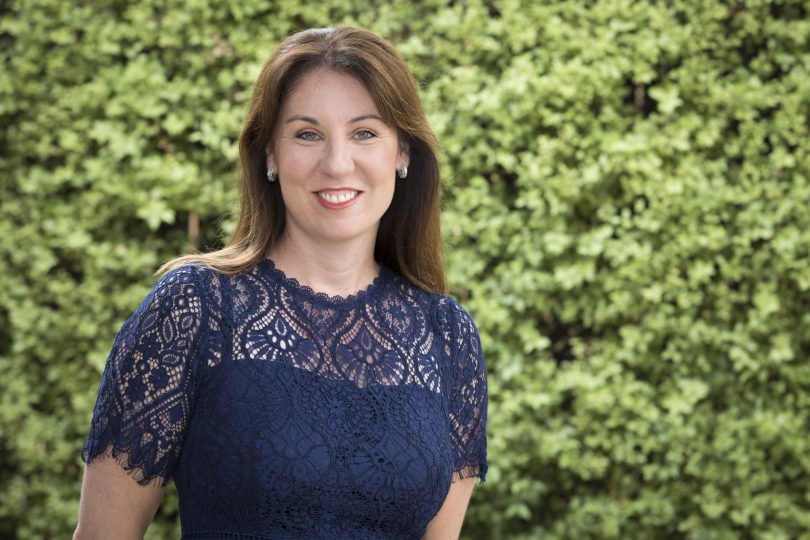
Lawyer Tanya Herbertson, from Meyer Vandenberg Lawyers, welcomes new power of attorney compensation laws for victims of financial abuse. Photo: Meyer Vandenberg Lawyers.
Reforms to power of attorney laws, which give the ACT Civil & Administrative Tribunal (ACAT) the power to order compensation or damages to victims of financial abuse, have been welcomed by Canberra lawyer Tanya Herbertson.
A partner at Meyer Vandenberg Lawyers, Tanya says up until now ACAT has been “a bit of a toothless tiger” with no power to fully remedy a wrongdoing.
She says the changes introduced in September 2021 will make it “so much easier, quicker and cheaper to get a remedy for the victim rather than having to go to the Supreme Court”.
Previously, victims of financial abuse were limited to seeking compensation against misbehaving attorneys in the ACT Supreme Court – a timely, expensive and confusing process for many.
But now victims can also seek recourse through ACAT, offering a much more straightforward option.
Tanya says Meyer Vandenberg Lawyers has seen a lot of cases involving the financial abuse of older people.
“Often it is ‘inheritance impatience’ and many [people] justify their conduct to themselves,” she says. “‘It’ll all be mine anyway once mum dies,’ or, ‘I deserve it with how much time and effort I’m spending in caring for mum, taking her to appointments, etc, so it’s really just fair remuneration for my services.’
“However, the law is very clear – if you are an attorney, you must always act in the best interests of the principal.
“You can’t use their money for yourself or anyone else unless you are authorised to do so in the actual power of attorney document. You must keep proper records and accounts for all that you do.”
Tanya was involved in a matter where a mother made an enduring power of attorney and appointed her son and her daughter as her attorneys, and the son was later found to be regularly taking large sums of money – to the tune of tens of thousands of dollars – from her bank accounts and keeping it for himself.
“She lost capacity due to dementia and the son and the daughter needed to invoke their power to look after their mother’s affairs,” explains Tanya.
“The power of attorney document said that either the son or the daughter could act, but it didn’t require them to act together.
“The daughter lived interstate so she largely left things to her brother as he lived in Canberra, as did their mother, so it was more convenient for the son to look after mum’s finances and pay her bills, etc.
“The daughter started getting suspicious that her brother was taking mum’s money for himself.”

Meyer Vandenberg Lawyers wills and estates lawyers Tanya Herbertson (left), Eleanor Heffernan (centre) and Michelle Gold (right). Photo: Meyer Vandenberg Lawyers.
On behalf of the daughter, Meyer Vandenberg Lawyers looked into the claims and took the matter to ACAT to have the son removed as attorney.
“We were successful in having him removed, but ACAT couldn’t do anything more, such as ordering him to repay the money to his mother, because they had no power to do so,” says Tanya.
“If that same situation happened now, with the changes that have been made to the law, ACAT could make orders to not just remove the son as attorney, but also to ensure the mother was compensated for her losses by making an order that the son pay financial compensation to the mother.”
Applications to the ACT Supreme Court, or ACAT, can be made by the victim, an interested family member or friend. Alternatively, ACAT may take the initiative to make orders for compensation or damages on its own.
Orders for compensation or damages may be made against an attorney if the attorney is found to have breached their legal duties and obligations, including not acting in the victim’s best interests, or misappropriating the victim’s money or property.
However, there are still some protections in place to reduce the liability of attorneys who may have unintentionally breached their duties.
The team at Meyer Vandenberg Lawyers can offer legal advice and assistance for all power of attorney matters or elder abuse issues.
This is a sponsored article, though all opinions are the author’s own. For more information on paid content, see our sponsored content policy.












